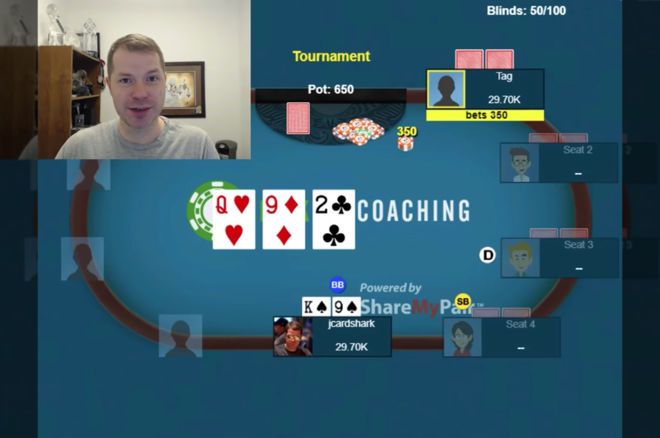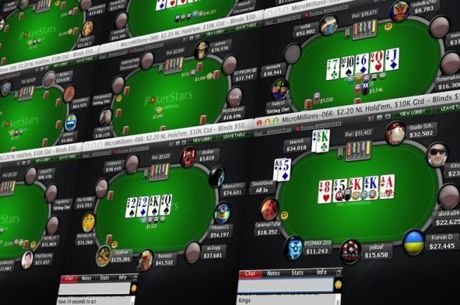A Common Postflop Spot With Middle Pair

This week's hand features a very common scenario that comes up time and again �� making a marginal made hand from out of position, such as after defending your big blind.
The hand comes from a $2,000 buy-in tournament I played in Atlantic City and comes from very early on when only a couple of six-handed tables were in action. I talk a little at the beginning of the video about the varied makeup of the field, which contained some pros but also a lot of recreational players.
With the blinds 50/100 and the stacks all around the 30,000 with which we started, a tight-aggressive player sitting under the gun (also the hijack seat at this short-handed table) raised to 300. Having been dealt K?9?, I defended my big blind with a call.
The flop came Q?9?2?. This is a situation that comes up often in a tournament or cash game session �� flopping middle pair from out of position. If you mess up this spot on a regular basis, you will lose a huge amount of money over the long term.
With marginal made hands, your goal should be to control the size of the pot while keeping your opponent's range as wide as possible. If the pot gets too large, you will find that your marginal pair loses almost all of its value.
Watch below and see how I manage to follow this advice by playing passively through to the river, then listen to my discussion of the merits of possibly betting out on the river (when I still have second pair) versus checking again.
Jonathan Little is a professional poker player and author with over $6,700,000 in live tournament earnings. He writes a weekly educational blog and hosts a podcast at JonathanLittlePoker.com. You can follow him on Twitter @JonathanLittle.









